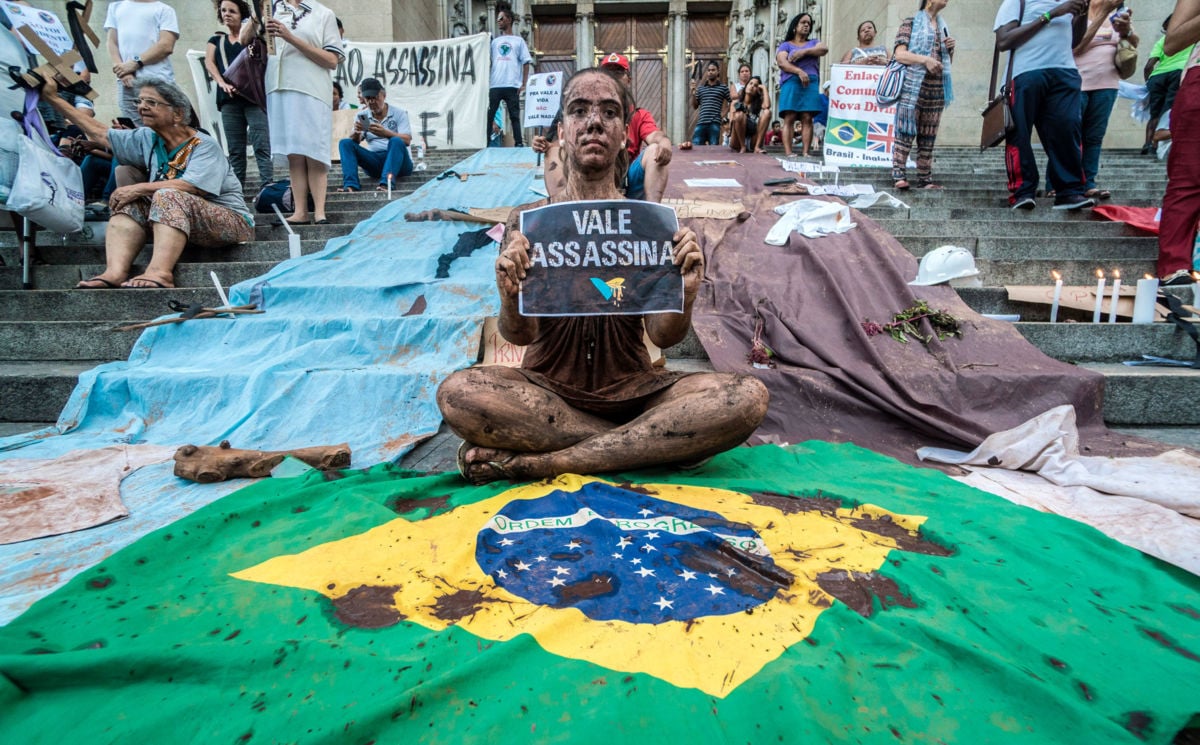On January 25, a dam at Córrego do Feijão in Brumadinho, Minas Gerais, Brazil, collapsed. At least 300 people have been killed, buried alive in mud. To date, 179 bodies have been identified. It is expected that this number will continue to grow, representing a horrific human rights and environmental catastrophe. The collapse is, according to many, no accident. The owner of the dam is the Brazil-based transnational corporation Vale, which holds the status of being the globe’s largest producer of iron ore. On February 21, Vale announced that it would pay each adult resident in Brumadinho $3,227.02 (this is a year’s worth of minimum wages in Brazil).
The mining industry in Brazil has been pivotal in “post-colonial” capitalist development, with catastrophic human rights and environmental abuses. Vale has been in operation since 1942. It was privatized in 1997 during a wave of neoliberal economic reforms that swept across the world, seeking to privatize resources previously managed by the state or communally. With this move, the only incentive for Vale was profit-making, with little of that wealth remaining in the country to benefit the common good.
This is not the first time that a dam has collapsed in Brazil — and Vale has a track record of being implicated in human rights abuses. In fact, in 2015, a similar event occurred when two dams ruptured at an open-pit mine, also located in the state of Minas Gerais. That mine is operated by Samarco, a project between Vale and the Australian company PHP Billiton.
While this current story has gained international attention, it is important that the world pay heed to the fact that this incident was not just an accident; with another 130 dams in Brazil constructed just like the one that collapsed, the likelihood of this happening again is high. In the shorter term, families are displaced and in need of immediate housing and assistance. Organizations and movements in Brazil, as well as international partners in the U.S., are working to support in this effort.
This catastrophe is unfolding and ongoing, and the effects from January 25 will be felt for a long time. This is why the payout offered to Brumadinho residents is limited. It might aid in short-term assistance (while it is still arguably insufficient to account for the fact that people’s lives have been lost and homes destroyed, for which a monetary amount cannot be assessed), but it does nothing to address the long-term effects for Brumadinho residents, nor the larger structural problem of prioritizing corporate profit above all else. Toxic sludge from the collapse has polluted the water and caused fish kills; the impacts will spread far away, potentially affecting 521 cities, with devastating consequences for rural and Indigenous communities. Vale’s payout does not address the reality that the company failed to listen to concerns voiced by the community surrounding the dam complex expansion in December 2018. The payout also does not account for the fact that no justice has been served for the Samarco dam catastrophe that occurred in 2015.
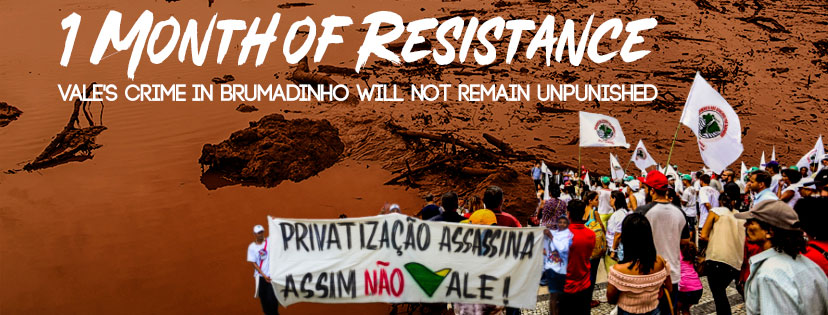
Brazil has announced that it will ban the specific type of dam structure that collapsed in the Brumadinho incident by 2021. This is an important announcement. Yet, this move takes place within a political context in which Brazilian President Jair Bolsonaro is also advocating to eliminate environmental and human rights protections and increase extractive mining, including in Indigenous people’s reserves.
The story that also needs to be told — and that social movements are pushing to be heard — is that Vale needs to be held accountable. The use of words like “accident” removes responsibility and culpability for the event; it works to create the illusion that catastrophes like Brumadinho could not be prevented. On February 15, Brazilian police arrested eight employees of the transnational corporation Vale, charging them with first-degree murder. This is an important step in holding Vale accountable, but it cannot end here. What happened at Brumadinho is not simply the fault of eight individuals.
Brazil is a resource-rich nation: it holds the world’s largest reserve of fresh water, and it is rich in iron and other minerals. The resources being extracted — and the actions of Vale — are part of a global economic system in which we all participate, and the resources of which those of us in the Global North utilize at the expense of communities like Brumadinho. It is a part of global finance capital; Vale has international shareholders and is on the Wall Street stock exchange.
This point speaks to the heart of an article published in the Brazilian news source Brasil de Fato that called out the dam collapse as a crime and not an accident, asserting: “The process of privatization and the denationalization of Vale is emblematic of the neoliberal project in Brazil. There was no record of tragedies such as Brumadinho while the company was state-owned.” In other words, Vale is the symbol of what privatization means in Brazil.
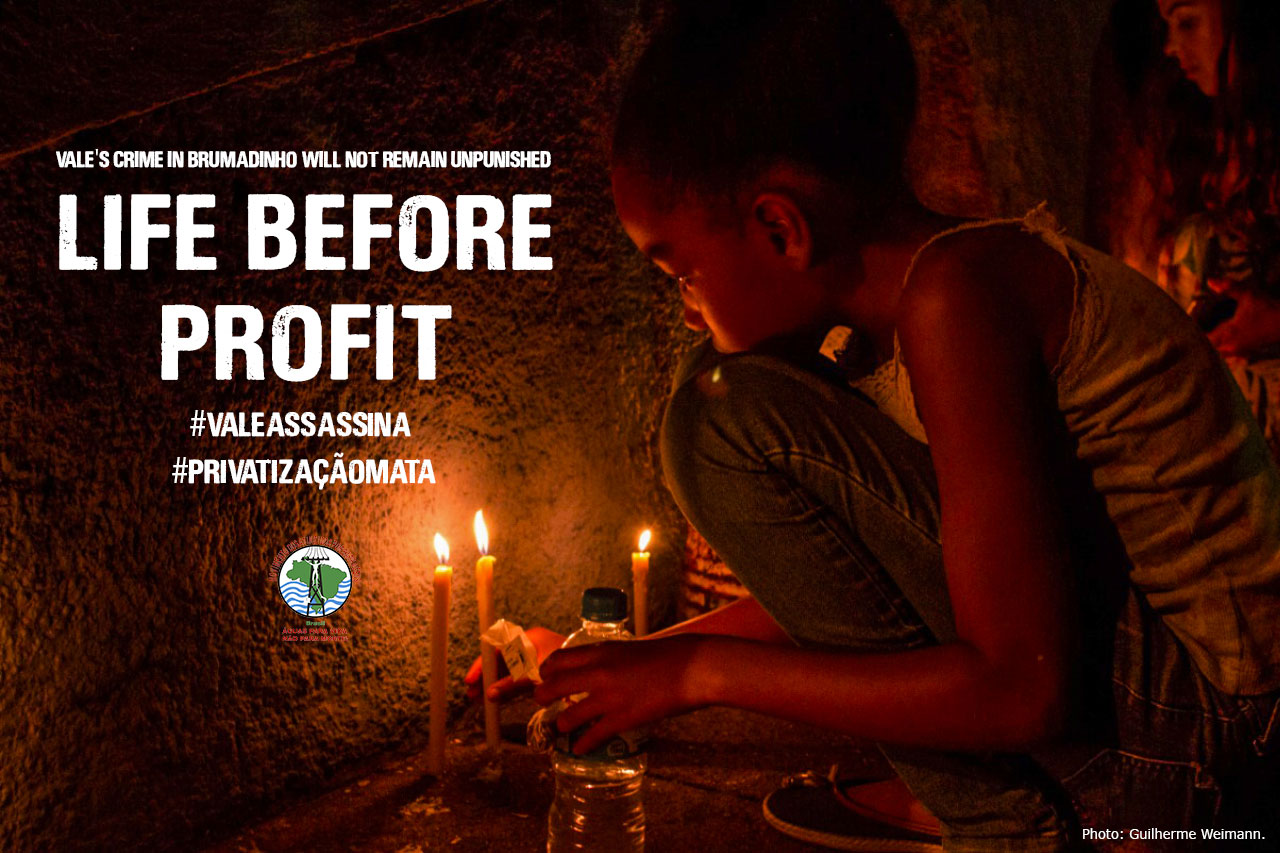
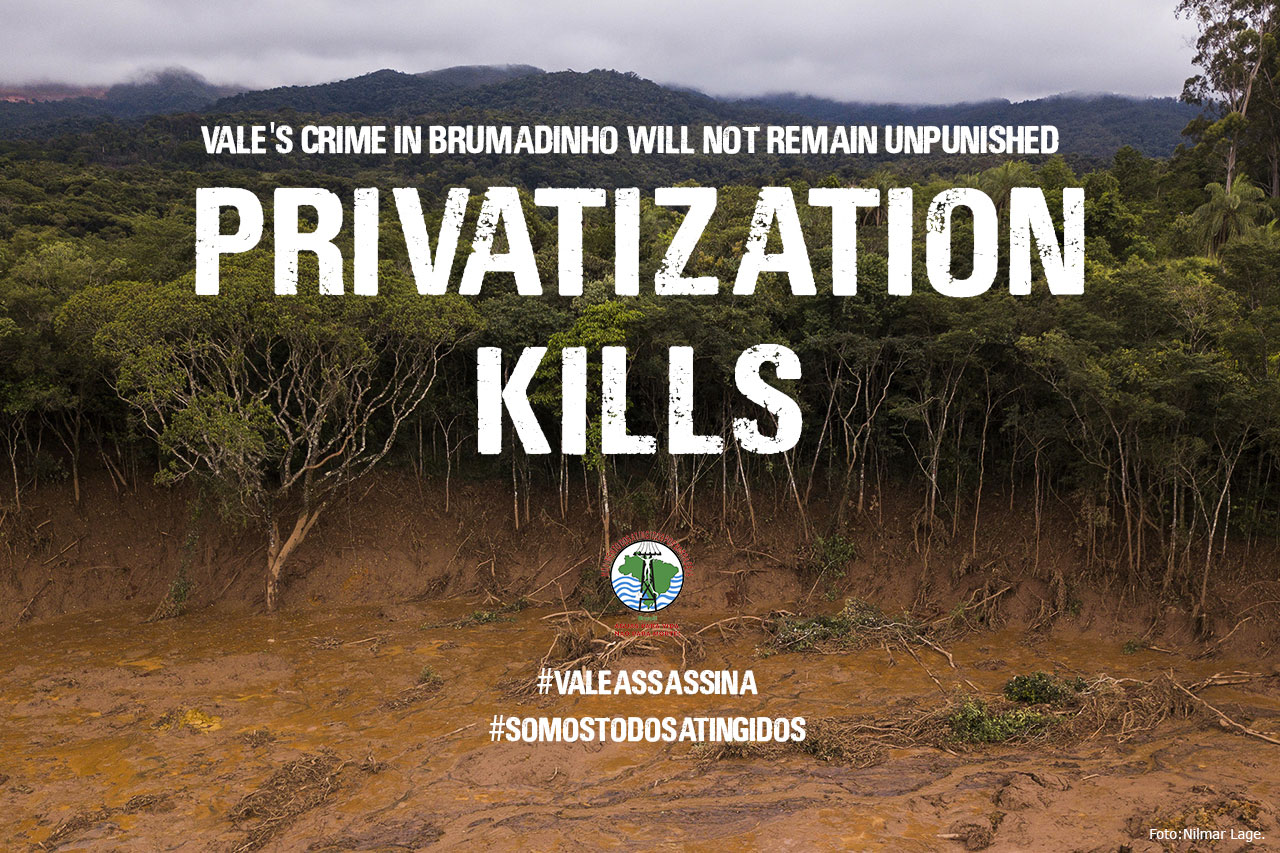
The Brumadinho catastrophe is not just a tragedy for Brazil, or just about Vale. Colonialism’s legacy remains through corporate control and global economic structures. Social movements are resisting, fighting for human rights — and for Vale specifically to be held accountable. Their actions represent a radical position in the face of right-leaning governments that run on rhetoric of “law and order” and seek to further shrink the public safety net and impose harsh penalties on social movements fighting for basic human rights.
The Movement of People Affected by Dams (MAB, or Movimento dos Atingidos por Barragens in Portuguese) is a Brazilian social movement comprised of communities directly affected by dam projects. MAB fights against the removal of families from their homes and opposes the privatization of water, rivers and natural resources on which the communities depend for their livelihoods.
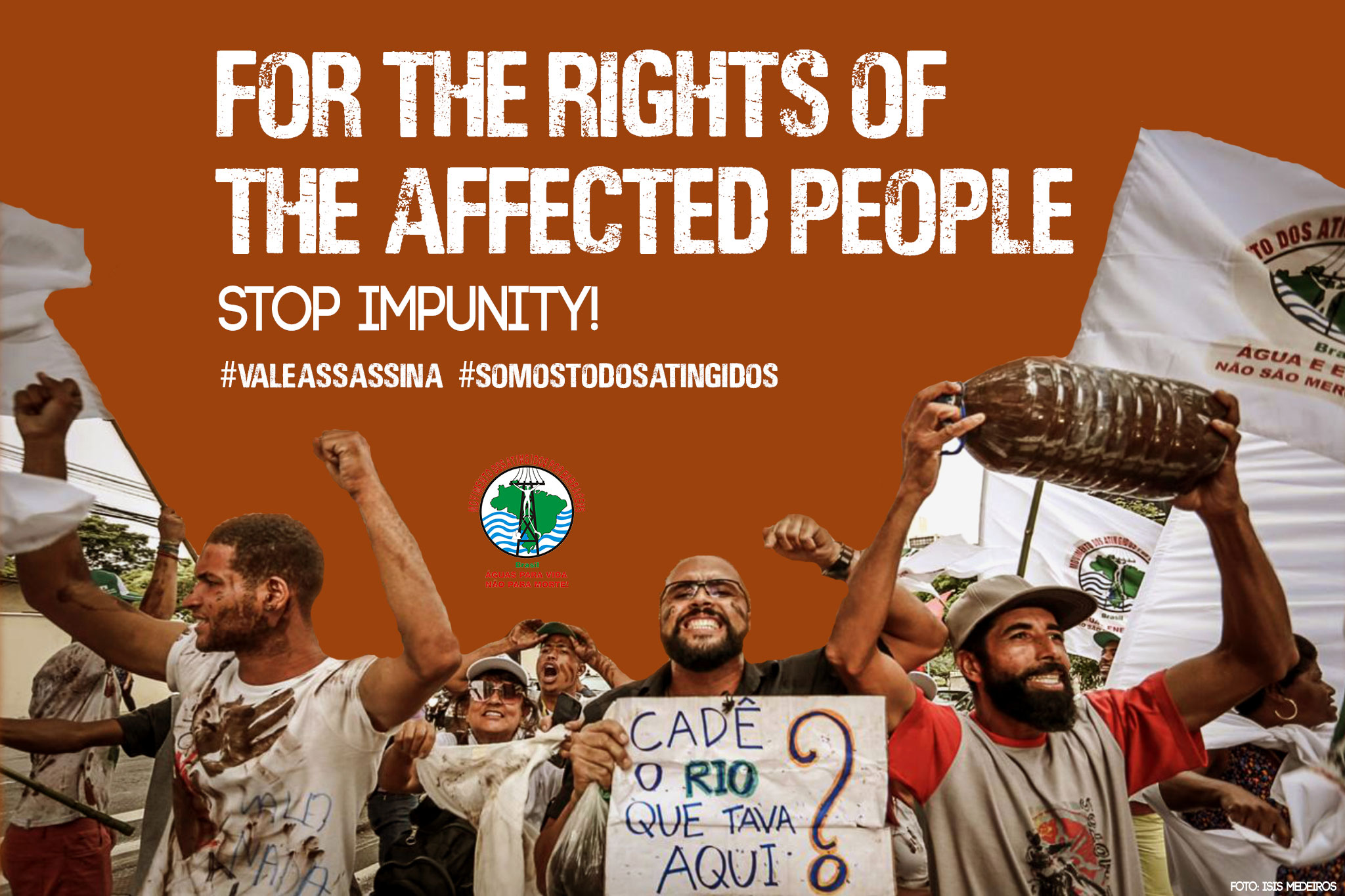
Rob Robinson, member of the US Solidarity Committee with MAB, told Truthout his organization pledges to do everything in its power to continue to raise awareness and keep the issue on the world stage. “When as many lives are lost as there were in the dam collapse … it is time for the Brazilian government to stand up and hold Vale accountable,” Robinson said. “When the human rights of our brothers and sisters in Brazil are violated, we are all affected.”
As MAB and others fight for justice in the face of this tragedy, activists are calling for:
1) Vale to be held responsible for their actions and to pay reparations.
2) The inclusion and participation of the affected communities in any decision or reparation agreement.
3) A guarantee of the inclusion of civil society in all follow-up and monitoring of decisions.
February 25 marked one month of resistance to the Brumadinho crime. MAB declared that, “Vale’s crime in Brumadinho will not go unpunished;” and demanded “life before profit.”
To date, no sanctions have been leveled against Vale. Brazil, under the administration of Bolsonaro, is facing a constant barrage of rollbacks on existing social and environmental protections. This makes the importance of international solidarity even more imperative at this moment.
Join us in defending the truth before it’s too late
The future of independent journalism is uncertain, and the consequences of losing it are too grave to ignore. To ensure Truthout remains safe, strong, and free, we need to raise $44,000 in the next 6 days. Every dollar raised goes directly toward the costs of producing news you can trust.
Please give what you can — because by supporting us with a tax-deductible donation, you’re not just preserving a source of news, you’re helping to safeguard what’s left of our democracy.
